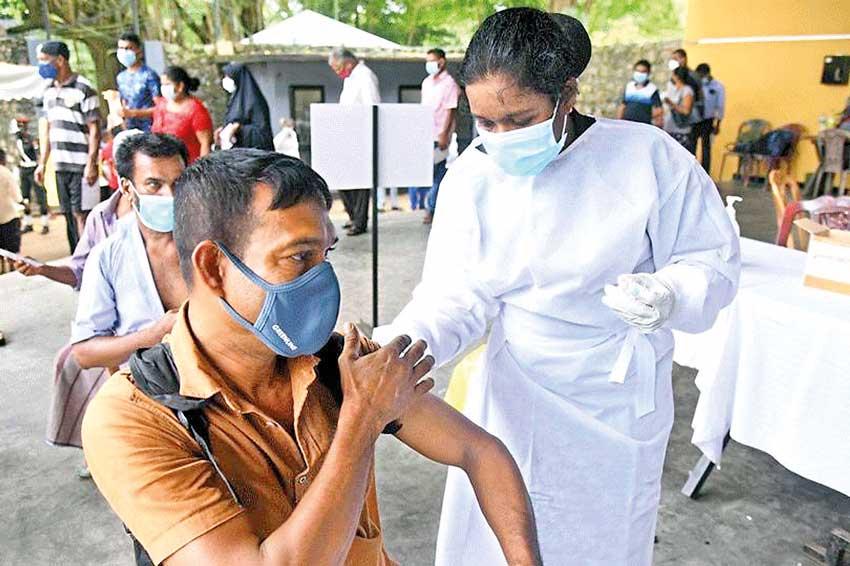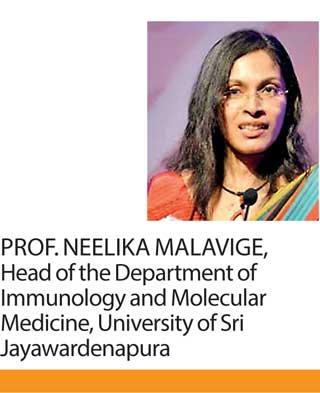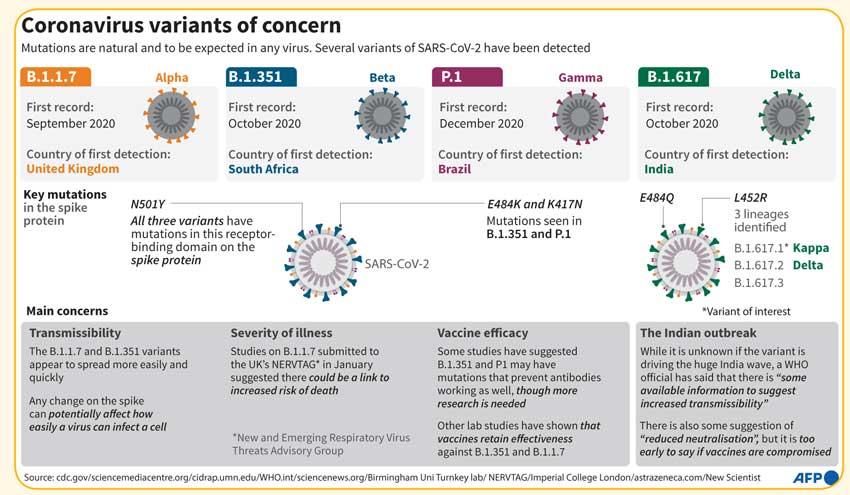Reply To:
Name - Reply Comment

 COVID- 19 has been a part of our lives for more than a year now, but like how everything in this world, mutates and evolves- the virus too has evolved into various variants. Currently, 70%- 90% of COVID- 19 cases in Colombo is due to the Delta variant of the SARS-CoV-2 virus. Speaking to Daily Mirror, Prof. Neelika Malavige, Head of the Department of Immunology and Molecular Medicine, University of Sri Jayawardenapura stated that the Delta variant was also seen in Galle, Matara and had just emerged in Kurunegala and Rathnapura districts and Jaffna. “Alpha (UK variant) is the main variant seen in the rest of the country. “However, based on what has been experienced in all other countries in the world, as Delta is 50% more transmissible than Alpha, it rapidly replaces Alpha. So we would be able to see delta gradually spreading all over the country and replacing alpha. It will eventually become the dominant variant. In most countries, 99% of COVID-19 cases are due to delta,” she shared.
COVID- 19 has been a part of our lives for more than a year now, but like how everything in this world, mutates and evolves- the virus too has evolved into various variants. Currently, 70%- 90% of COVID- 19 cases in Colombo is due to the Delta variant of the SARS-CoV-2 virus. Speaking to Daily Mirror, Prof. Neelika Malavige, Head of the Department of Immunology and Molecular Medicine, University of Sri Jayawardenapura stated that the Delta variant was also seen in Galle, Matara and had just emerged in Kurunegala and Rathnapura districts and Jaffna. “Alpha (UK variant) is the main variant seen in the rest of the country. “However, based on what has been experienced in all other countries in the world, as Delta is 50% more transmissible than Alpha, it rapidly replaces Alpha. So we would be able to see delta gradually spreading all over the country and replacing alpha. It will eventually become the dominant variant. In most countries, 99% of COVID-19 cases are due to delta,” she shared.
Should we be worried?
“It is worrying because of its very high transmissibility. Because of this it spreads much faster infecting a large number of individuals in a shorter period of time,” she said adding that there is emerging evidence indicating that its increase disease severity however was not confirmed. She said that it might have a similar virulence to the Alpha variant, which caused more severe disease than the original SARS-CoV-2 viruses.
Who are at risk?
Since the variant has a high transmissibility and is the dominant variant in the Western Province Prof. Malavige stated that anyone can be affected with it. However, she emphasised that the elderly and those with other illnesses such as diabetes, kidney disease, heart disease and cancer are mostly at risk of developing severe disease. “Therefore, it is extremely important that they get vaccinated,” she underscored.
What is the effect on an individual’s immunity?
Prof. Malavige shared that someone who has had a natural infection was unlikely to be re-infected with a different variant, immediately after infection. But the individual can experience a re-infection several months later (usually 6 months later). She emphasised that this was why it was important for people who had been infected by COVID-19 to be vaccinated against COVID- 19. Thereby, this could minimise their chances of being re-infected.

Do the vaccines currently available in Sri Lanka give adequate immunity against Delta?
Touching on the data in the UK and the USA, Prof. Malavige noted that though these countries have a large surge in the number of cases as Delta accounts for the majority of cases- due to the high vaccine coverage (over 60% of the population has been fully vaccinated), there were lower proportion of deaths caused by Delta variant compared to the previous waves. In the same vein, countries which have poor vaccine coverage such as Indonesia (only 8.1% fully vaccinated), Thailand (6% fully vaccinated) have experienced very high number of deaths.
“Sri Lanka’s vaccine campaign has been outstanding. Within a very short period of time 50% of the population have received a single dose, while 13.2% are fully vaccinated. However, for variants such as delta, a single dose alone has low efficacy against symptomatic infection and hospitalization. Therefore, in order to protect the vulnerable, a large proportion of the population should be fully vaccinated,” she revealed.
Prof. Malavige stated that individuals usually develop protection, only 2 weeks after the second dose. Although vaccinated individuals may get infected with COVID-19 after receiving both doses of a COVID-19 vaccine, disease is usually asymptomatic or very mild. “Therefore, vaccines do work, even against delta by preventing severe disease and death. So, it is very important that especially older people and those with comorbidities (diabetes, heart disease, kidney disease) to get vaccinated. For some reason, there is still a significant proportion of such vulnerable individuals who are not taking the vaccine, despite the opportunity to do so, possibly due to wrong beliefs,” she noted.